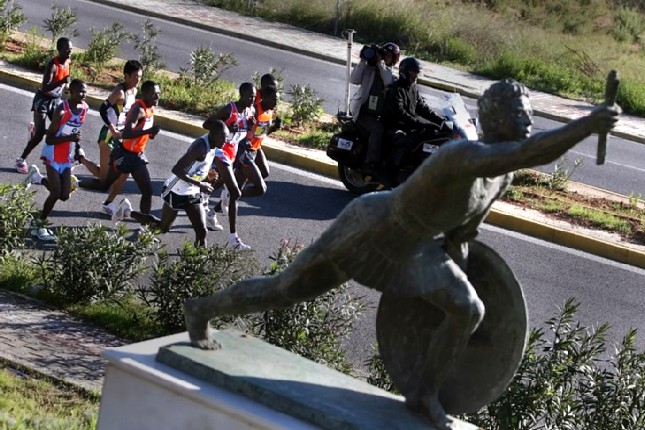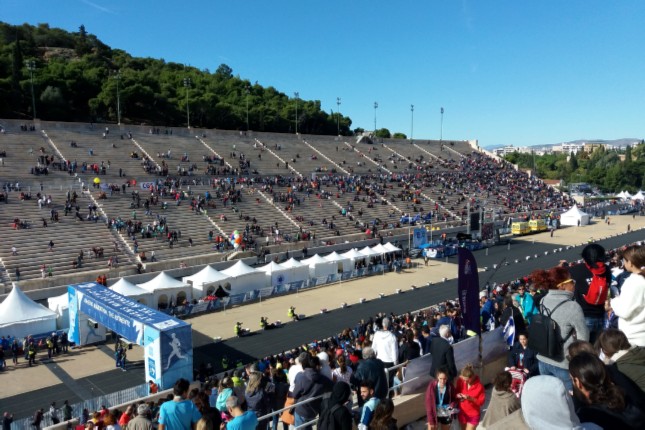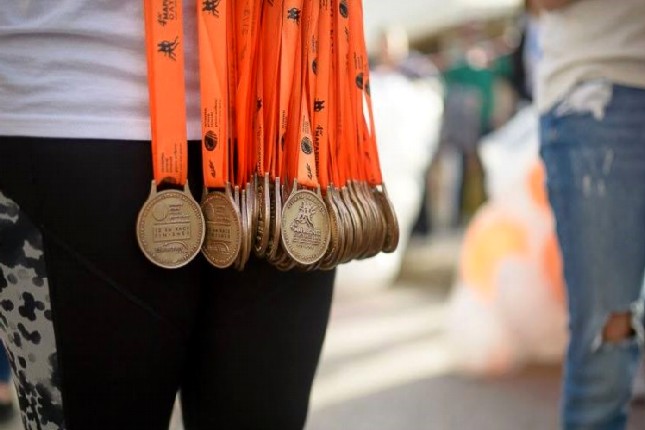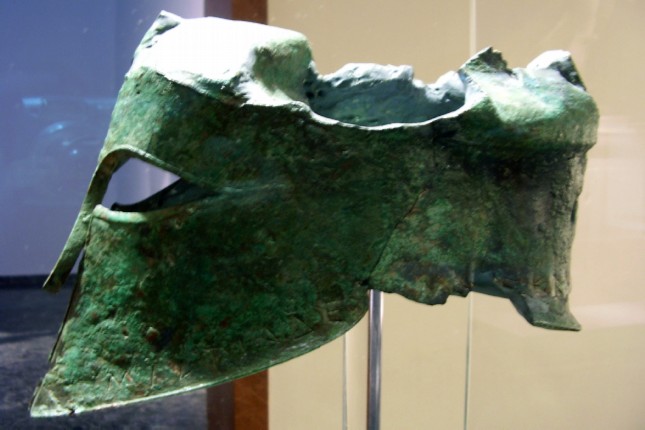The Boston Marathon is a famous marathon which is run every April in Boston, Massachusetts, in the USA. The Boston Marathon began on 19 April 1897 and the distance of the race is 26.219 miles. It is the world's oldest annual marathon and ranks as one of the world's most prestigious road racing events. It is held every year to celebrate Patriots Day, a holiday marking the beginning of the American Revolution, linking the Athenian and American spirit and struggle for democracy.
The Origins of the Boston Marathon

The name “Marathon” comes from the legend of Philippides, an Athenian herald or hemerodrome and the central figure in the story that inspired the modern sporting event; the Boston Marathon. As the well-worn legend goes, Philippides ran from Marathon to Athens to deliver news of a military victory against the Persians at the Battle of Marathon (490 BC). It is said that he ran the entire distance, 40 kilometers (25 miles), without stopping and burst into the assembly, exclaiming “nenikēkamen!” (νενικήκαμεν, "we have won!"), before collapsing of exhaustion and dying.
Athens Classic Marathon – The Authentic

The Athens Classic Marathon - The Authentic, is an annual marathon road race held in Athens on the 2nd Sunday of November.
The Athens Classic Marathon has unique status, being held on the authentic Olympic Marathon course since 1983. The point-to-point course begins at the Municipality of Marathon where it passes around the Tomb of the fallen Marathon soldier and follows a path near the coast through Nea Makri. Then, the course continues towards the city of Athens. It passes the statue of The Runner (Ο Δρομέας) to finish in Athens, inside the Panathenaikon Stadium; the beautiful marble stadium in which events of the first Modern Olympic Games were held. The Athens Classic Marathon - The Authentic is perhaps the most difficult major marathon race.
The Establishment of the Boston Marathon

At the first modern Olympic Games in 1896 in Athens, officially known as the Games of the I Olympiad, the originators and coordinators were looking for a great event, recalling the ancient glory of Greece. The suggestion of organizing a "marathon race" to commemorate the run of the Greek soldier Philippides came from Michel Bréal, who wanted the event to feature in the first modern Olympics. This idea was supported by the Greeks as well as Pierre de Coubertin, the founder of the modern Olympics. This would echo the legendary version of events, symbolizing Philippides’ self-sacrifice for the good of the whole, with the competitors running from Marathon to Athens. The distance was fixed at 42.195 kilometres (26 miles 385 yards); roughly the distance from Marathon to Athens.
The event was so popular that it quickly caught on, becoming a fixture at the Olympic games, with major cities, like Boston, later organizing their own annual events. After the first modern Olympic Games, a group from Boston that had competed for the United States returned home full of excitement about the marathon race they had witnessed. The result of that excitement was the establishment of the Boston Marathon the following year that has been running every third Monday of April ever since.
The Marathon of Olympia - The Birthplace of the Olympic Spirit

Every year, for the past five years, Athletes run the distance between Ancient Elis and Olympia, following the footprints of the Sacred Route; the “Road to Glory”. The Sacred Route of Ilia is one of the most important routes of antiquity and an integral part of the Olympic history. On the eve of the Olympics, one of the greatest peaceful hikes of Greek antiquity would take place. Thousands of people would transit from the city to the sanctuary for the great celebration in honor of Zeus.
The Marathon of Olympia is a celebration of classical sport that attracts visitors from across the globe, making them carriers of the ideals of the race, as well as sending the omnipotent message for Peace and Democracy. It unites the two historic cities of Ilida and Olympia where the Olympic Spirit was born, and the Olympic Ideal was revived.
The Helmet of Miltiades - The General of the Battle of Marathon

After Miltiades, the Athenian general, led the Athenians to victory at Marathon, he dedicated his helmet to Zeus at the sanctuary in Olympia as a symbol of his gratitude.
The Miltiades Helmet is now in the collection of battle memorabilia in the Archaeological Museum of Olympia in Greece. The act is inscribed on the helmet itself; "ΜΙΛΤΙΑΔΕΣ ΑΝΕΘΕΚΕΝ ΤΟΙ ΔΙΙ". 490 BC. The helmet is quite beaten, and the crown is missing. Its dull surface does not offer the slightest hint of the burnished gold finish it boasted when it graced the head of the man who wore it into battle over two millennia ago.





